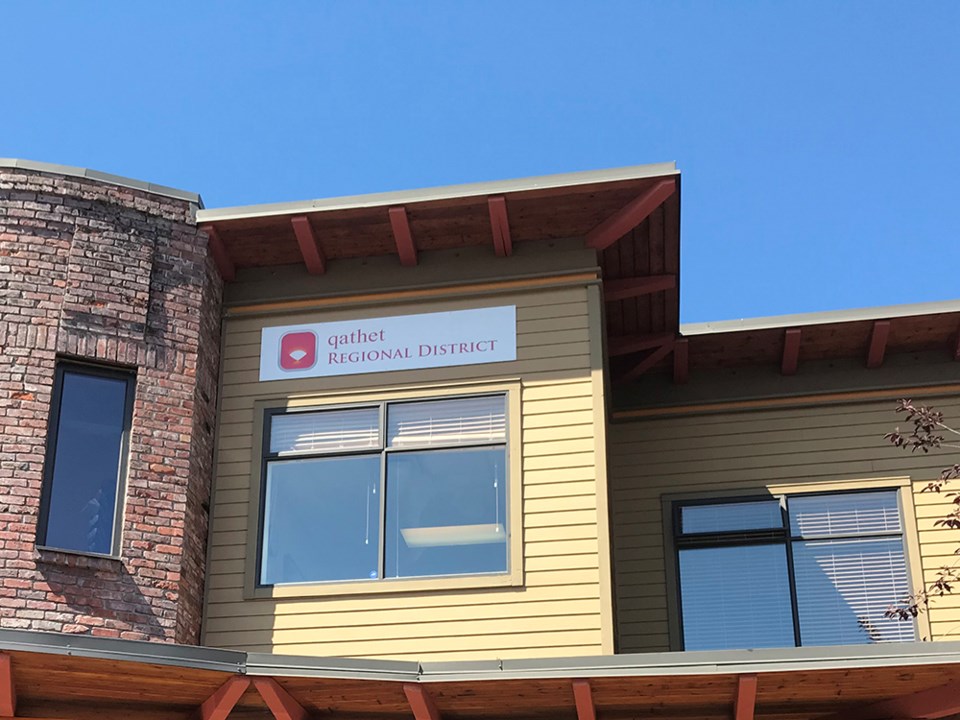qathet Regional District (qRD) directors have voted to send correspondence to the Union of British Columbia Municipalities (UBCM) and provincial housing minister Ravi Kahlon, advocating for the immediate withdrawal of four government bills.
At a special meeting of the regional district board on November 29, directors also voted that the government develop sound, long-term policies with a more balanced approach to input, including proper and respectful engagement with those being impacted, namely local governments.
Bills 44, 45, 46 and 47, cover matters such as housing and residential development, homelessness, transit and a number of other concerns.
Electoral Area B director Mark Gisborne said his understanding was the special meeting had been called because the provincial government was being fast and forceful with proposed legislation that would see some of the most significant changes to local government planning and land use management regimes.
“I saw the announcements and the newspaper articles and I keep hearing it is targeted at municipalities and urban areas,” said Gisborne. “I texted [Powell River – Sunshine Coast] MLA Nicholas Simons and he gave me a quote which was: ‘regional districts representing rural areas will remain exempt from the official community plan and zoning requirements.’
“I asked some of my Union of British Columbia Municipalities counterparts and they said that is not true and that electoral areas are part of this legislation. Trying to get clarity is not easy.”
Gisborne said it would be hard to find someone more opposed to single-family zoning than he is but the proposed legislation does not solve the issue. The reason why Gisborne has a lot of issues is the province makes changes that impact local governments.
“They should go to the UBCM, but because they are ramming this through so quickly, the UBCM is still trying to figure out what is going on,” said Gisborne. “That’s why we should ask the province to put a pause on this until the UBCM can get a handle on it. As I understand it, there are impacts in electoral areas.”
Bills have problems, says director
Electoral Area E director Andrew Fall said there were components on the bills that he did not like. One was related to public hearings, so there are certain conditions where the regional district would not be allowed to hold public hearings related to official community plans and zoning bylaws.
“That’s really significant,” said Fall, adding that there are cases where the regional district is forced to do things in the rural areas. “All these bills have problems and I support saying they’ve got the process wrong. The intent is okay but there are too many consequences that haven’t been thought out.”
Electoral Area D director Sandy McCormick said this is a case of the provincial government running roughshod over the authority that the provincial government in years past gave to local governments.
“I’m very upset at the lack of consultation and the lack of opportunity for input from the public regarding the authority local governments have had to create zoning,” said McCormick. “All that has been taken away.”
City of Powell River director Cindy Elliott said the legislation is designed to shackle or limit the ability of local governments to respond to local concerns.
“The intention to get housing built, I agree with; fundamentally, we do want to streamline the process,” said Elliott. “The building code is one of the main blockages and they are not addressing that. If the intention is to offload responsibility to local governments or social things like shelters and so forth, the taxation ability and the ability to fund that also has to come.
“I want to say to the province I want to deal with these issues. We want to get the housing built. We are their partners, not their enemies.”
Gisborne said the provincial legislation in some jurisdictions is a step forward, but in other jurisdictions, it is regressive.
“I support the resolution,” said Gisborne. “The province needs to work with the UBCM, electoral area directors and local governments because this is a major issue. We can work together and come up with some good policies to make meaningful change in this province regarding housing.”
The regional board carried the motion to send correspondence to the UBCM executive and minister of housing, advocating for the immediate withdrawal of bills 44, 45, 46 and 47.
The bills passed in the provincial legislature the week of November 27 to 30, which was the last week of sitting for the fall session.
Join the Peak's email list for the top headlines right in your inbox Monday to Friday.



